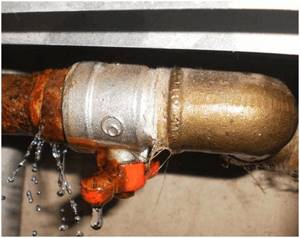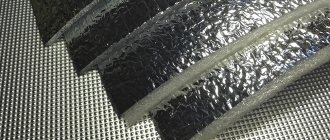Heating is an important issue that every home or cottage owner faces. In addition to choosing equipment, you need to decide on the heating fluid. More and more people are thinking about using oil rather than water for their home heating system. There are many opinions regarding this issue, which we will try to understand.
Heating is important
The issue of heating arises even during the design of a new house. Sometimes it appears when the operating mode changes. So, for example, a person could buy himself a country house, which the previous owners visited only in warm weather. Now he intends to visit it in late autumn and winter. What to do? Shouldn't you stay in a cold room? The answer is obvious - heating. It is important to choose which one and with what coolant. It depends on many factors.
Most people try to use water in their system, since it is the cheapest and most energy-intensive coolant. Moreover, if the temperature drops below zero, it will freeze. As a result, the system will have to be heated, and, at best, some burst pipes will have to be welded. At worst, you need to change the entire system, including the boiler. This situation is not only unpleasant, but also costly.
Therefore, in winter, special additives are used for water to prevent freezing. They come in different varieties, ranging from liquids with mineral salt to alcoholic ones. Each has its own positive and negative qualities. But still, none of them can be called ideal. It is in this regard that many people think not about what to add to the water, but what to replace it with.
Advantages
Used oil in the heating system has many advantages:
- In winter, the liquid will not freeze. Unless the temperature in the house drops to -35 degrees Celsius. Agree, this is unlikely to happen.
- It doesn’t matter how long the negative temperature lasts, it does not affect the oil in any way. You can turn on the boiler and start heating the room at any time.
- Low volatility due to the structure.
- There is no need to additionally pour in any additives to prevent the coolant from freezing.
- The oil has high anti-corrosion properties. Therefore, there is no need to flush the system frequently.
- Has high thermal stability.
*
Myths and reality
- Out of habit, it is believed that waste is not subject to further use and is only suitable for disposal. In reality, it is an inexpensive energy carrier, its toxicity is no greater than that of other types of fuels and lubricants.
- They believe that it is difficult to purchase such oil. But the number of car services, service stations, railway depots, power plants, small enterprises and even catering outlets (used vegetable oil) refutes this opinion. It will take some time to negotiate regular supplies, but the affordable price makes up for everything.
- The assertion about a large number of harmful toxins in the atmosphere has no good reason. Unfortunately, any energy source produced from oil releases harmful substances when burned. The main thing is to use modern equipment and the oil will burn almost completely.
- If the work in the tank is over, the heating system will be unclaimed. But most new models of equipment are universal and can be used with diesel fuel or gasoline.
At the moment, there are not many systems that operate on waste oil, and consumers have not yet widely demanded this material. But sooner or later, in order to rationalize heating costs and the need to use alternative sources, used transformer oil will take its rightful place among energy carriers.
Flaws
Despite the obvious advantages of this type of coolant, there are still a number of disadvantages:
- The need for filtration before injecting into the system. The fact is that usually the oil is a mixture of many oils of different brands and viscosity. In addition, it contains third-party components in the form of dirt and metal. The process of cleaning a considerable volume can cost a large sum.
- Availability of the required quantity. At the moment, there are no companies that are engaged in the targeted collection and purification of oil for future infusion into heating systems. Therefore, finding a sufficient amount of the desired consistency will be problematic.
- High fire hazard. In the event of a leak, there is a risk of fire. True, for this the liquid must come into direct contact with an open source of fire.
- It is not permissible to use a boiler with direct heating.
- Replacing all rubber gaskets and connectors with oil-resistant ones, which will be more difficult to find, since conventional heating systems are not equipped with them. In addition, their purchase can cost a large sum.
Peculiarities
Before pouring used oil into the system, it is important to check many nuances that will affect the work and comfort of residents in the future.
So, it is known that this coolant is fluid, even in the cold. But for conventional heating this is not enough. Warm and cooled oil have significantly different viscosities. Therefore, the pipes in the system must have the same diameter. And sometimes on return bends you can make it larger. The fact is that the boiler itself heats up quickly, but does not have time to push the oil through. In this case, even boiling is possible.
It is also important to think about the size of the expansion tank in advance. In aqueous systems, 10% of the total liquid volume is usually taken. With oil, things are a little more complicated, because when heated, it expands more than H2O. Despite this, the level in the system still needs to be checked from time to time and topped up if necessary. In such designs, it is recommended to install tanks measuring 30% of the total volume.

A particularly important condition in the matter of heating a house with used and already purified oil is tightness. In most cases, it is not possible to completely avoid leaks the first time. It is considered ideal to apply a new weld in such places, since gaskets and similar elements do not solve the situation. After this, the system starts up and is checked for complete tightness - small drops appear in places where there are even microscopic holes. In this case, it is advisable to drain all the oil and digest the problem areas. In this case, the procedure must be repeated until the system is completely corrected.
It is imperative to pay attention to all connecting threads. It is very important that they are of high quality, especially when serving. Otherwise, small drops may appear on them when heated. And sometimes the connection will even leak. At the same time, it will be difficult to seal such a joint. You can immediately say that it will not be possible to solve the problem with tow or fulente. In some cases, specialized sealants that can withstand temperatures up to 400 degrees help.
Generally speaking, the use of oil in the heating system allows you to leave the room for a long time in any weather. And there is no need to worry about her hypothermia. In addition, with the help of this coolant you can heat batteries to high temperatures without fear of system failure. But, as with everything, there are positive and negative sides.
Is it possible to pour transformer oil into the heating system of a house?
the oil used for cooling DOES NOT BURN :))) there is a concept of “flash point”, but it does not apply to normal conditions
The use of oil in cooling systems is stopped by only one circumstance - oil is EXPENSIVE
for reference - you can DRINK good oil without any harm to the body (probably only disgusting ????)
In the garage, we use oil as a heating medium for the entire system with an expansion tank, etc. it took 300-350 liters
I couldn’t set fire to the oil itself; wood watered with it burns very poorly
the only negative is the thickening, but when warmed up the oil becomes liquid again very quickly
What doesn’t burn, even transformer oil, is fantastic-)))) It burns and putting it out is a whole problem, you need to sprinkle such a thick layer of sand that you’ll be tortured by swinging a shovel-)))) All containers with any oil have a symbol “flammable”, just for some the ignition temperature is not higher than for paper, but, under certain conditions, vapors can form, which not only ignite easily, but also explode. But, however, those who do not agree with this can add oil; transformer oil is not difficult to obtain.
“To ensure effective heat removal, transformer oils must have the lowest viscosity at a flash point of at least 95, 125, 135 and 150 ° C for different brands.” - this is from data from oil manufacturers (paper, if I remember correctly, ignites at a temperature of about 200 degrees Celsius)
“The flash point is the temperature of oil heated in a crucible, at which its vapor forms a mixture with air that ignites when a flame is brought to it. The flash occurs so quickly that the oil does not have time to warm up and ignite. The flash point of transformer oil should not be lower than 135° C. If you heat the oil above the flash point, then there comes a moment when when a flame is brought to the oil, it ignites. The temperature at which the oil ignites and burns for at least 5 seconds is called the ignition temperature of the oil. The temperature at which combustion occurs in a closed crucible, in the presence of air, without the application of a flame, is called the auto-ignition temperature. For transformer oil it is 350-400 ° C.” - this is from the reference book.
“Measures to extend the life of the oil are:
1) protecting the oil from contact with outside air by installing expanders with filters that absorb oxygen and water, as well as displacing air from the oil;
2) reduction of oil overheating under operating conditions;
3) regular cleaning of water and sludge;
4) use of continuous oil filtration to reduce acidity;
5) increasing oil stability by introducing antioxidants.” - this is what needs to be ensured during operation.
However, you can look at this
“The class of organofluorine liquids is very interesting. In foreign literature they are called perfluorocarbons. In fact, this is the equivalent of ordinary organic liquids, but instead of a hydrogen atom, there is a fluorine atom everywhere. For example, there are analogues of organic compounds, such as pentane C5h22 - perfluoropentane C5F12, hexane C6h24 - perfluorohexane C6F14, triethyl(propyl, butyl)amine - perfluorotriethyl(propyl, butyl)amine, etc. There is even perfluorotransformer oil. (Unlike real transformer oil, perfluorotransformer oil is a solid under normal conditions and is used as a frost-resistant lubricant.) The presence of fluorine in place of hydrogen means that the substance is completely oxidized, because fluorine is the strongest oxidizing agent, stronger than oxygen. Therefore, fluorocarbon liquids are inert with respect to any influences, incl. stable under the influence of electric field and temperature. Since they do not interact with anything, they do not dissolve oils, rubber, water, etc. The high performance of fluorocarbon fluids is important for applications. Replacing the H atom with an F atom leads to new properties and new possibilities:
- non-flammability;
— high thermal and chemical stability;
— inertness towards metals, solid dielectrics and rubbers;
- non-toxic, colorless and odorless;
— the ability to select liquids with different boiling and freezing points;
— low solubility of water and high solubility of gases;
— lack of solubility of any non-fluorinated materials;
— high coefficient of thermal expansion.
Our studies of the behavior of some liquids under constant and alternating voltage show that in terms of electrophysical parameters: resistivity, tg d, electrical strength, they significantly exceed similar indicators of any other liquids, including mineral oils. They are non-toxic, non-oxidizing, have low viscosity, incl. in the low temperature region. A number of liquids have a freezing point of -70°C or lower. The main obstacle to wider use is the relatively high price. This obstacle can be removed. Currently, there is groundwork for the development of a new, cheaper technology for producing perfluorocarbons.
Let us present the numerical values of some electrophysical parameters. Dielectric constant e =1.8-2, tgd < 10-4, r > (1012-1015) Ohm m, electrical strength - up to 500 kV/cm. An important feature is the fairly high electrical strength in the gaseous (vapor) state - up to 200-300 kV/cm, because fluorocarbon molecules have high electron affinity, i.e. they are electronegative substances. Among other properties, we note not only inflammability, but also thermal stability up to temperatures of more than 400 ° C. Although the thermal conductivity of fluorocarbons is two to three times lower than that of transformer oil, the exceptionally high coefficient of thermal expansion leads to the emergence of powerful convective flows. In this case, convective heat removal is 3-4 times higher than that of transformer oil. The main disadvantage is their high cost - they are several tens of times more expensive than transformer oil.
To date, these liquids have not found widespread use in the energy sector. Abroad they are used for cooling powerful rectifiers and inverters that convert alternating current into direct current for microwave devices. The proposed creation of compact fireproof evaporative transformers for electric vehicles and compact switchgear is possible only on the basis of perfluorocarbon liquids.”
But the latter is another story -)))))))))))))))))))
With all respect, Andrew.
where did I talk about transformer oil :))) we use oil, which is used as a coolant for cooling/heating burning liquids in the chemical industry????
I don’t know about transformer oil :)))
I don’t have it - when I have it, I’ll set it on fire and then I’ll be able to write about it.
As an experiment, try setting fire to Total Racing 10w50 oil :)))
Re: There is such a funny thing as “Safety Rules” Regarding the safety rules, I agree 100%.
Regarding oil - transformer oil has a heat capacity greater than water, a higher boiling point, is not electrically conductive, and is not corrosive.
But not budget at all.
The windings in transformers burn and an arc occurs. There are such temperatures that metal starts to burn like a match. ????
Heating is an important issue that every home or cottage owner faces. In addition to choosing equipment, you need to decide on the heating fluid. More and more people are thinking about using oil rather than water for their home heating system. There are many opinions regarding this issue, which we will try to understand.
The issue of heating arises even during the design of a new house. Sometimes it appears when the operating mode changes. So, for example, a person could buy himself a country house, which the previous owners visited only in warm weather. Now he intends to visit it in late autumn and winter. What to do? Shouldn't you stay in a cold room? The answer is obvious - heating. It is important to choose which one and with what coolant. It depends on many factors.
Most people try to use water in their system, since it is the cheapest and most energy-intensive coolant. Moreover, if the temperature drops below zero, it will freeze. As a result, the system will have to be heated, and, at best, some burst pipes will have to be welded. At worst, you need to change the entire system, including the boiler. This situation is not only unpleasant, but also costly.
Therefore, in winter, special additives are used for water to prevent freezing. They come in different varieties, ranging from liquids with mineral salt to alcoholic ones. Each has its own positive and negative qualities. But still, none of them can be called ideal. It is in this regard that many people think not about what to add to the water, but what to replace it with.
As many people know, oil has a significantly lower freezing threshold than the same water. Therefore, ideas arise to use it in the heating system. As with everything, there are advantages and disadvantages here.
Used oil in the heating system has many advantages:
- In winter, the liquid will not freeze. Unless the temperature in the house drops to -35 degrees Celsius. Agree, this is unlikely to happen.
- It doesn’t matter how long the negative temperature lasts, it does not affect the oil in any way. You can turn on the boiler and start heating the room at any time.
- Low volatility due to the structure.
- There is no need to additionally pour in any additives to prevent the coolant from freezing.
- The oil has high anti-corrosion properties. Therefore, there is no need to flush the system frequently.
- Has high thermal stability.
Despite the obvious advantages of this type of coolant, there are still a number of disadvantages:
- The need for filtration before injecting into the system. The fact is that usually the oil is a mixture of many oils of different brands and viscosity. In addition, it contains third-party components in the form of dirt and metal. The process of cleaning a considerable volume can cost a large sum.
- Availability of the required quantity. At the moment, there are no companies that are engaged in the targeted collection and purification of oil for future infusion into heating systems. Therefore, finding a sufficient amount of the desired consistency will be problematic.
- High fire hazard. In the event of a leak, there is a risk of fire. True, for this the liquid must come into direct contact with an open source of fire.
- It is not permissible to use a boiler with direct heating.
- Replacing all rubber gaskets and connectors with oil-resistant ones, which will be more difficult to find, since conventional heating systems are not equipped with them. In addition, their purchase can cost a large sum.
Before pouring used oil into the system, it is important to check many nuances that will affect the work and comfort of residents in the future.
So, it is known that this coolant is fluid, even in the cold. But for conventional heating this is not enough. Warm and cooled oil have significantly different viscosities. Therefore, the pipes in the system must have the same diameter. And sometimes on return bends you can make it larger. The fact is that the boiler itself heats up quickly, but does not have time to push the oil through. In this case, even boiling is possible.
It is also important to think about the size of the expansion tank in advance. In aqueous systems, 10% of the total liquid volume is usually taken. With oil, things are a little more complicated, because when heated, it expands more than H2O. Despite this, the level in the system still needs to be checked from time to time and topped up if necessary. In such designs, it is recommended to install tanks measuring 30% of the total volume.
A particularly important condition in the matter of heating a house with used and already purified oil is tightness. In most cases, it is not possible to completely avoid leaks the first time. It is considered ideal to apply a new weld in such places, since gaskets and similar elements do not solve the situation. After this, the system starts up and is checked for complete tightness - small drops appear in places where there are even microscopic holes. In this case, it is advisable to drain all the oil and digest the problem areas. In this case, the procedure must be repeated until the system is completely corrected.
It is imperative to pay attention to all connecting threads. It is very important that they are of high quality, especially when serving. Otherwise, small drops may appear on them when heated. And sometimes the connection will even leak. At the same time, it will be difficult to seal such a joint. You can immediately say that it will not be possible to solve the problem with tow or fulente. In some cases, specialized sealants that can withstand temperatures up to 400 degrees help.
Generally speaking, the use of oil in the heating system allows you to leave the room for a long time in any weather. And there is no need to worry about her hypothermia. In addition, with the help of this coolant you can heat batteries to high temperatures without fear of system failure. But, as with everything, there are positive and negative sides.











